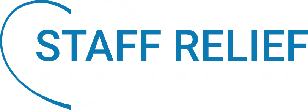What is Post Operative Care?
"The Road to Recovery: Essential Post-Operative Care for a Speedy Healing Process"
Undergoing surgery is a significant event that marks the beginning of a healing journey. While the surgical procedure itself is crucial, post-operative care plays an equally vital role in ensuring a smooth recovery and optimal health outcomes. The steps taken after surgery significantly impact the healing process, making post-operative care an essential aspect of overall healthcare management. This is where post operative care comes in.
Following surgery, your healthcare team will provide detailed instructions for post-operative care. These instructions may include medication schedules, wound care procedures, dietary guidelines, physical activity limitations, and signs of potential complications. Adhering strictly to these instructions is crucial for a successful recovery.
In this blog post, we will explore what respite care is, and the benefits of nursing agency respite care for caregivers.
Wound Care and Dressings
Proper wound care is paramount to prevent infections and promote healing. Ensure that you keep the surgical site clean and dry as advised by your healthcare provider. Changing dressings, as instructed, and monitoring for any signs of infection, such as increased redness, swelling, or discharge, are essential.
Pain Management
Pain and discomfort are common after surgery. Your doctor will prescribe pain medications to manage post-operative pain. Take medications as prescribed and communicate any concerns or unusual symptoms to your healthcare provider.
Rest and Recovery
Allow your body the necessary time to rest and heal. Adequate sleep and relaxation aid in the recovery process. Follow any restrictions on physical activities or lifting heavy objects to prevent strain or injury to the surgical area.
Proper Nutrition
Eating a balanced diet rich in nutrients promotes healing. Follow any dietary recommendations provided by your healthcare team. Stay hydrated and aim for foods that support healing and boost your immune system
Attend Follow-Up Appointments
Scheduled follow-up appointments with your surgeon or healthcare provider are essential. These appointments allow them to monitor your progress, remove stitches or staples if needed, and address any concerns or complications that may arise during recovery.
Preventing Caregiver Isolation and Loneliness
Recovering from surgery can be physically and emotionally challenging. Seek support from family, friends, or support groups if you're feeling anxious, overwhelmed, or experiencing mood changes during the recovery period.
Remember, every individual's recovery process is unique, and it's essential to communicate openly with your healthcare team throughout the post-operative period. By following their guidance, taking care of yourself, and allowing ample time for healing, you'll pave the way for a successful recovery and a return to your daily activities with renewed health and vitality.
How Staff Relief Can Help Your Family
At Staff Relief, we understand the challenges of caregiving and the importance of taking breaks to avoid burnout. That's why we offer respite care services to help families in need. As a respite care provider, our goal is to provide temporary relief for caregivers while ensuring that their loved ones receive quality care and attention.
Staff Relief offers respite care options and private homecare services to meet the unique needs of each family. We believe that everyone deserves quality care and support. If you're a caregiver in need of respite services, we encourage you to call us (905-709-1767) today. Our compassionate and experienced trained staff can provide the support and relief you need to take time for yourself and recharge your batteries.



